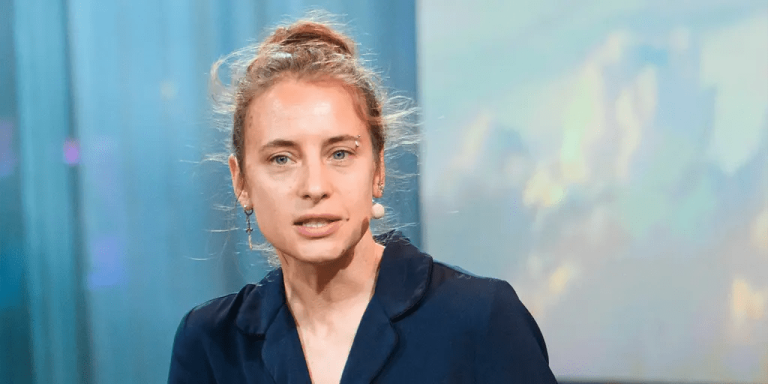From the Daily Skeptic
Chris Morrison
In June last year, the country-dependent BBC reported that man-made climate change had made heat waves “35 times more likely” in the United States and Mexico. There’s nothing out of the ordinary in the mainstream media, with everyone from climate comedian “Jim” Dyer to UN Secretary General “Boiling” Guterres making these bizarre attributions. But for those who follow climate science and the Intergovernmental Panel on Climate Change (IPCC) assessments closely, “such headlines can be difficult to understand,” said Roger Pielke, a well-known science writer. In a blistering attack on the pseudoscientific industry of weather attribution, he noted: “Neither the IPCC nor the basic scientific literature has made such a strong and conclusive attribution claim.”
Pielke believes that the position of blaming individual severe weather events on extremes is “broadly consistent” with the far left. “Climate science is not, or at least should not, serve as a proxy for political tribes,” he warned. But of course it is. The net zero fantasy is a collectivist national and supranational agenda that increasingly relies on demonizing severe weather. With global temperatures rising by a maximum of 0.1°C per decade, when IPCC Chairman Jim Skea claimed that British summers would rise by 6°C in less than 50 years, the laughter could only be universal and hilarious. Two long temperature pauses since 2000 haven't helped the cause of global boiling. Additionally, there are growing doubts about the reliability of temperature records from many meteorological organizations, which appear unable to properly account for large-scale urban thermal corruption.
For “far left” climate extremists, the biggest problem is event attribution, a form of “tactical science,” in Pielke's words. Such science serves legal and political purposes and is not always subject to peer review. As the BBC and other media can attest, this work is “often promoted through press releases”. Pilke noted that it was developed in response to the Intergovernmental Panel on Climate Change's failure to detect and attribute most types of extreme weather, including droughts, floods, storms and wildfires, to human involvement. Worse, by 2100, the IPCC could find little sign of human involvement.
Scientists cannot directly answer whether a specific event is caused by climate change because extreme events occur naturally. At the same time, the IPCC is somewhat dismissive of weather attribution (or, in Pielke's words, “the alchemy of weather attribution”). It states: “The usefulness or suitability of existing extreme event attribution methods for assessing climate-related risks remains controversial.” The IPCC is a biased body filled with climate alarmists, but it cannot attribute single events to As humans, this is obviously very annoying and causes some inconvenience to activists and fellow media.
Dr Friederike Otto runs World Weather Attribution (WWA) at Imperial College London and appears regularly on the BBC. Much of the severe weather is directly attributed to human causes, and the WWA is behind it all, and its motives are clear. As Dr. Otto points out: “Unlike every other branch of climate science, or science in general, event attribution was actually originally proposed with the courts in mind.” Otto was clear that the primary function of this type of research are supporting lawsuits against fossil fuel companies, research funded in part by pro-net-zero billionaires, and heavily promoted by mainstream media. She explains this strategy in detail in the interview “From Extreme Event Attribution to Climate Litigation.”
Pielke went on to say that the Intergovernmental Panel on Climate Change cannot blame humans for severe weather, which climate advocates consider a “political issue.” He pointed to the work of climate activists Elizabeth Lloyd and Naomi Oreskes, who worry that a lack of attribution “conveys the impression that we just don't know, which fuels dissent.” Certainty, doubt or incompleteness, the common human tendency to underestimate threats is not imminent.”
Dispel the idea that there should be uncertainty, doubt, or incompleteness in the established world of climate science. It differs, of course, from all other branches of science in that all its ideas are correct and therefore does not require the unhelpful process of constant inquiry and experimentation. It hardly needs adding that there is no doubt that this exists at the BBC, the former Radio 4 today Editor Sarah Sands wrote the foreword to the WWA Reporter's Guide. Recalling the late Nigel Lawson's claim that there was no increase in extreme weather, Sands noted: “I wish we had this journalist's guide to help us mount a more effective challenge to his claims. Sands enthuses that attribution research now gives us “a deep understanding of the knights of climate disaster.”
Otto, for her part, was passionate about suppressing heretics. She was at the forefront of the recent infamous retraction of a paper in the journal Springer Nature that said there was no evidence that the climate was worsening. They were written by four Italian scientists, led by Professor Gianluca Alimonti, who argued that the data did not support a climate emergency. Otto, who previously worked at the Oxford School of Geography for 10 years, claimed that scientists do not write with good intentions. “If journals care about science, they should loudly retract it and say publicly that it should not be published,” she demanded.
Chris Morrison is daily skepticof Environment editor.
Relevant
